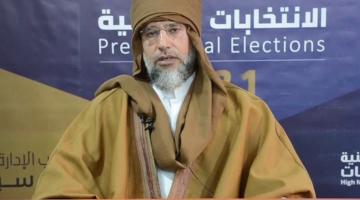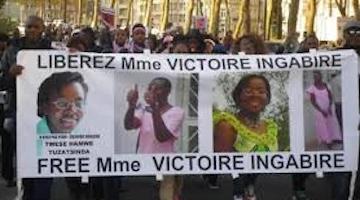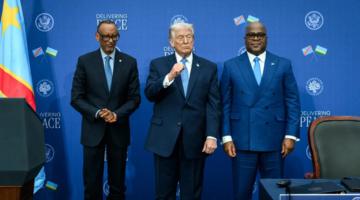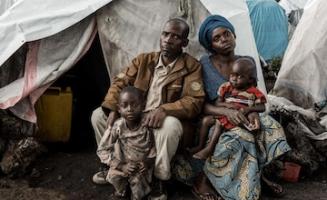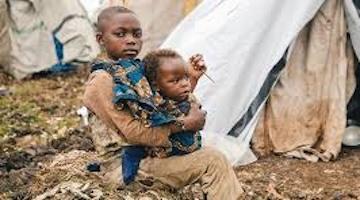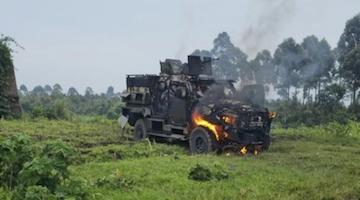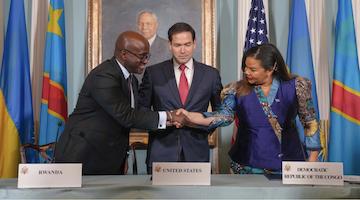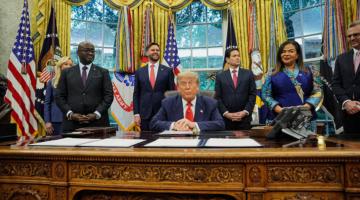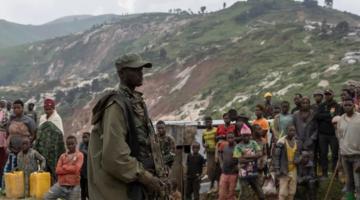Apparent assassination and cover-up occurred during a critical period in African history.
September 18, 1961, was a significant day in the struggle surrounding the African liberation movements aimed at ending colonialism on the continent.
United Nations Secretary General Dag Hammarskjold and the entire crew and passengers aboard his plane went down in Ndola located in the then British colony of Northern Rhodesia, now known as Zambia.
Although the colonial authorities claimed that the crash and subsequent deaths were the result of “pilot error”, ever since this time questions have been raised over whether the crash was a deliberate act of sabotage designed to prevent a political solution to the crisis in the former Belgian Congo. The United Nations had been invited into Congo by the first Prime Minister Patrice Lumumba amid a destabilization campaign that was engineered by the former Belgian colonial authorities along with the United States administration under President Dwight D. Eisenhower.
Lumumba had won the elections after overcoming tremendous obstacles including imprisonment, slander and political efforts to derail his Congolese National Movement (MNC-Lumumba). He became a center of focus during the First All-African People’s Conference (A-APC) held in Accra, Ghana in December 1958 under then-Prime Minister Kwame Nkrumah.
After winning independence on June 30, 1960, Lumumba’s views on Pan-Africanism and anti-colonialism made him a target of the imperialist states. Eisenhower, in a confidential meeting with the National Security Council (NSC), made it quite clear that Lumumba had to be eliminated.
In a series of plots coordinated by the Central Intelligence Agency (CIA) there were attempts to poison the Congolese revolutionary leader. Eventually, the UN peacekeeping forces were utilized to place Lumumba under house arrest while blocking him from speaking over the national radio network in order to alienate him from the people in Congo, Africa and the international community.
The role of the UN under the leadership of Hammarskjold served as an important element in the undermining of the liberation movement. Lumumba was able to escape from his residence in Leopoldville, fleeing to the East of the vast country to join many of his comrades who had established an interim government.
Between June 30 and the escape from Leopoldville, the MNC-Lumumba government had been subjected to a mutiny by the Force Public, the colonial police forces still administered by Belgian officers. Later Col. Joseph Mobutu in September announced a military coup against Lumumba and President Kasavubu. It was later revealed that the CIA had already bribed Mobutu to carry out the putsch.
During this same period, the secessionist Moise Tshombe from the mineral-rich Katanga region in the South declared the province separate from the central government in Leopoldville. Tshombe as well as working on behalf of the transnational firms exploiting the natural resources inside the country. Consequently, by the concluding months of 1960, there were three different centers of purported authority in Congo: Leopoldville in the West under the control of Mobutu, the Katanga secessionists in the South and the followers of Lumumba whose strongest base at that time was in the East.
The Death of Secretary General Hammarskjold
Although Hammarskjold played a negative role in the UN intervention in Congo during the mid-1960s, there were indications that after the brutal assassination of Lumumba in January 1961, plans were underway to negotiate a peace settlement in the country. Reports indicate that the Secretary General was en route to hold discussions when the plane crashed in Northern Rhodesia.
Reports on the situation suggest that the U.S. and other imperialist states were opposed to Hammarskjold’s efforts to reach a political settlement in Congo. The Cold War atmosphere of the early 1960s viewed the country as an important geostrategic contested zone in the battle between imperialism and the Soviet Union. Lumumba, when surrounded by hostile Belgian and U.S. interests, had appealed to Moscow and other socialist states for assistance.
One of the early theories involving the downing of the plane carrying Hammarskjold and his staff claimed that the aircraft was shot down by a Belgian mercenary pilot, Jan van Risseghem, working at the time with the Katangese secessionists. In the aftermath of the crash, hours would pass before an official rescue and recovery operation got underway. A cable sent by the U.S. embassy in Congo at the time mentioning the pilot was not declassified until 2014. Risseghem was reportedly given an alibi making it appear that he was not in the area at the time of the crash. Other documents on the cable sent by the U.S. embassy have still not been declassified.
However, according to an entry on the History Channel website:
“Another long-standing theory centers on documents released from apartheid-era South Africa in the late 1990s, which suggest that a white militia group called the South African Institute for Maritime Research (SAIMR) orchestrated the plane crash that killed Hammarskjold—with the support of both British intelligence and the CIA. Though British officials claimed that the documents were likely Soviet forgeries, the theory has persisted. Both theories are addressed in the 2019 documentary, Cold Case Hammarskjold. The film contains interviews that suggest the flight logs were forged and that van Risseghem (who died in 2007) admitted his involvement in the crash to a friend named Pierre Coppens four years later. A former SAIMR member recalls the group’s claims of successfully taking Hammarskjold down.”
Over the decades there have been several UN inquiries into the death of Hammarskjold. The most recent, conducted by the former Chief Justice of the United Republic of Tanzania Supreme Court, Mohamad Chande Othman, was concluded in late 2022.
This report by Othman was finally released by the current Secretary General Antonio Guterres on October 18. However, there are documents that remain missing from important imperialist states that were involved in the sabotage and destabilization of Congolese independence.
The United Nations in an article coinciding with the latest report notes:
“However, Mr. Othman assesses so far that it is ‘almost certain’ specific, crucial and so far undisclosed information exists in the archives of Member States, Mr. [Farhan] Haq said (UN Deputy Spokesperson). He noted that Mr. Othman has not received, to date, specific responses to his queries from some Member States believed to be holding useful information. ‘The Secretary-General has personally followed up on [Mr. Othman’s] outstanding requests for information and calls upon Member States to release any relevant records in their possession,’ Mr. Haq added. ‘With significant progress having been made, the Secretary-General calls on all of us to renew our resolve and commitment to pursue the full truth of what happened on that fateful night in 1961.’”
The CIA has been behind several coups in Africa, Asia and Latin America since the 1950s. In 1966, Dr. Kwame Nkrumah, the first Prime Minister and President of Ghana, was overthrown by the agency with the assistance of the State Department.
Although it was made to appear that disgruntled lower-ranking Ghanaian military officers and police were the architect of the coup, in actuality over a decade later, State Department documents surfaced which would explain in detail the role of the U.S. under then President Lyndon B. Johnson. Nkrumah, who had an enormous influence on Lumumba and other Pan-Africanist leaders, had sought to build socialism in Ghana where the Convention People’s Party (CPP) government upheld the formation of a United States of Africa as its principal foreign policy objective.
UN Hampered by Policy Nullifications and Political Assassinations
The apparent assassination of Hammarskjold and his colleagues was not the first time that the UN had been inflicted by political assassinations. On September 17, 1948, the UN mediator for the Arab-Israeli War, Count Folke Bernadotte of Sweden, was assassinated by members of the Zionist Stern Gang in occupied Palestine.
Although there was condemnation initially by early leaders of the State of Israel for the targeted killing of this UN mediator, in later years the perpetrators of the criminal act were vindicated by serving as officials of the Zionist regime. Since 1948, the occupiers of Palestine have expressed only contempt for the UN as an international institution.
On September 27, current Israeli Prime Minister Benjamin Netanyahu addressed the UN General Assembly 79th Session where he denounced the body as an enemy of the Zionist state. On that same day, targeted assassinations of several leaders of the Lebanese resistance movement Hezbollah and its Iranian counterparts were carried out in a densely populated suburb of the capital of Beirut.
In addition, personnel from the United Nations Peacekeeping Force in Lebanon (UNIFIL) were attacked by the Israeli Defense Forces (IDF) while being ordered by Netanyahu to evacuate the border area which had been established in 1978. UNIFIL has stated that it is mandated by the Security Council and will not leave the areas where they are deployed in Lebanon.
These historical events demonstrate clearly that the imperialists and their surrogates are committed resolutely to maintaining hegemony on a global scale. Consequently, it will take the people organized and mobilized in their own interests to ensure the genuine liberation and social emancipation required to bring peace and stability to the world.
Abayomi Azikiwe is the Editor of Pan-African News Wire.

